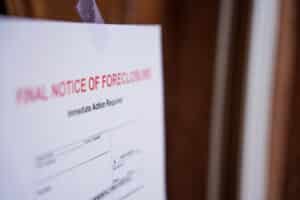Foreclosures and Ejectments
Client Story A foreclosure is the process by which a lender attempts to retake possession of the property of a homeowner who has fallen behind on their payments for an extended time. If your property is being foreclosed on, it’s possible to defend yourself against it—and potentially options to reclaim the property if you lose it. Context Foreclosure begins after the homeowner has failed to make payments on their mortgage for at least 120 days. Most mortgages will include a means for the lender to foreclose on your home in this way.The lender must publish notice of the foreclosure for … Learn More
Food Assistance
Client Story You may file for food assistance (“food stamps”) if you face food insecurity because of your limited income. This program, known as SNAP, allows lower-income families to purchase food using EBT cards. Context Food assistance is a public benefit which may be claimed by any qualifying person who faces hardship when purchasing food. The Alabama Food Assistance program is part of the federal Supplemental Nutrition Assistance Program (SNAP).In Alabama, food assistance is provided through the Alabama Department of Human Resources (DHR). In order to receive food assistance your household’s gross income must be less than 130% of the … Learn More
Evictions
Client Story Eviction is the process by which someone is removed from a home that they rent or otherwise stay at. You might be evicted for missed rent, for breaking terms of the lease, or simply because the landlord wants you to leave. You have legal rights during an eviction, and ways to represent yourself. Context The legal term for eviction is Unlawful Detainer. An eviction occurs after your lease has been terminated by your landlord, either because the lease ended or because you broke your lease in some way. This usually happens when you’ve fallen behind on rent, but … Learn More
3rd Party Debt
Client Story A company may sue someone who has not paid a debt. Old debts are sold to third parties—companies with whom you haven’t directly done business—who will then sue you to collect some or all of that debt, parties, who then sue people to collect the funds. If you don’t recognize the company which is suing you then it’s very likely a third-party debt buyer, and you’ll need to prepare yourself to meet them in court. Context In the case of 3rd party debt the owner of it (the plaintiff in this legal case) isn’t who you borrowed the … Learn More




